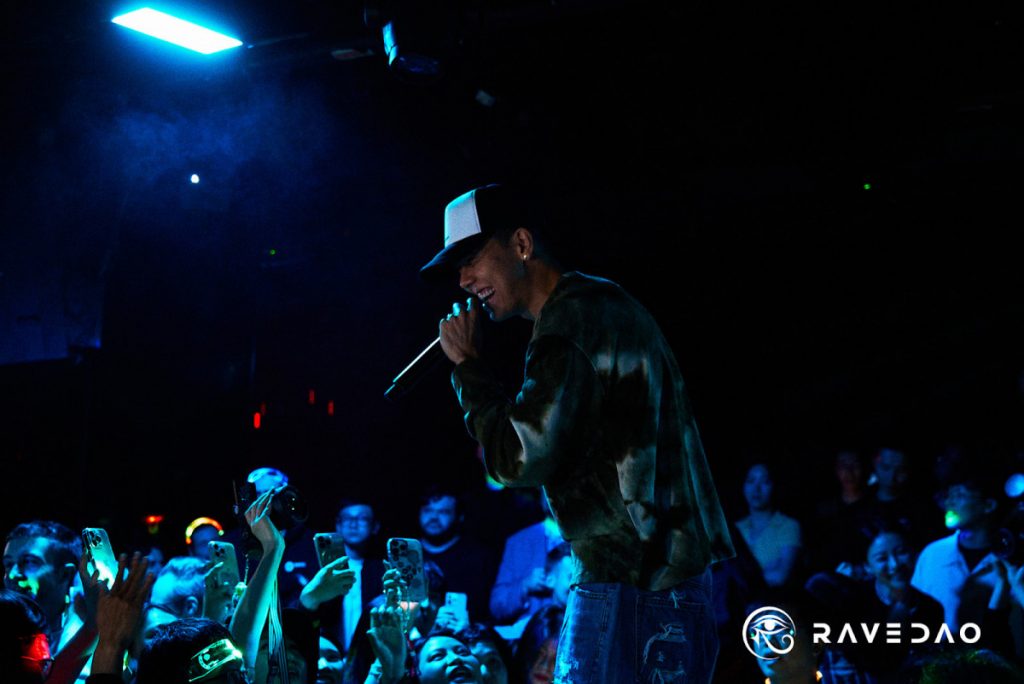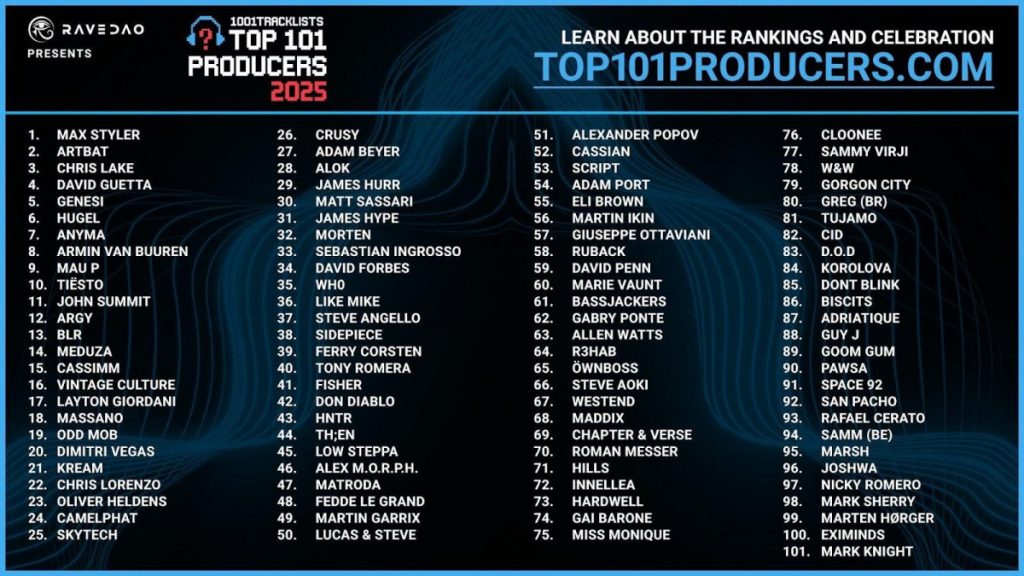From Festivals to Fundamentals: RaveDAO Turns EDM Culture Into Crypto’s Most Scalable Onramp


In a back-to-back takeover of Asia’s biggest culture and crypto weeks, RaveDAO activated Seoul and Singapore with over 6,000 attendees and on-chain passes minted, showcasing the first large-scale, USD1-powered payment experience in live entertainment. From WLFI’s offline debut at Korea Blockchain Week to a landmark F1 weekend with DCS DeCard at Token2049, RaveDAO proved what the industry has only promised: crypto can power culture invisibly and in real time.
At first glance, the Seoul and Singapore events looked like world-class music festivals: packed venues, top-tier DJ lineups, flashing lights, and crowds pulsing to the rhythm of the night. But behind the scenes, RaveDAO was doing something few others in crypto have managed. It introduced blockchain infrastructure into culture without the friction, jargon, or hype that usually chases it. Just systems that worked in the background while people danced in the foreground.

Seoul: First-Ever USD1-Powered IRL Payment Experience

Held during Korea Blockchain Week, RaveDAO’s Seoul chapter marked several firsts: WLFI’s inaugural offline event, RaveDAO’s first local chapter in Korea, and the debut of USD1 as an offline payment method in a live cultural setting.
Club Jack & BRRR pulsed with energy from across Korea’s EDM, K-pop and hip-hop scenes, but behind the bar, the door, and every QR scan, something different was happening. A live stablecoin economy was quietly powering the night. Guests booked tables and tickets using USD1, bought drinks, unlocked perks, and even handled travel all through blockchain-backed payments that felt no different than tapping a card. Everything ran on-chain. Nothing felt unfamiliar.
With artists like Loco, BB Girls, and DJ Aster on the lineup, and support from ecosystem players including AWE, Aptos, MUKU, Umy, Gradient, PLVR, SideKick, Sip, Delysium, and Mango Labs, the night pulled in a vibrant, Gen Z-heavy crowd already fluent in digital culture. Many were familiar with Web3 in theory through trading apps, fandom drops, or social platforms but this was the first time it felt fully woven into a physical experience. By the end of the night, they weren’t just partygoers. They held on-chain passes that could unlock future access, benefits, and community rewards across the RaveDAO ecosystem with no friction or wallet stress, just seamless participation that began with music.

Singapore: RaveDAO’s First Self-Produced Show Becomes F1 Weekend’s Coolest Party

After Seoul, Singapore became the stage for something bigger: RaveDAO’s first fully self-produced festival, set during one of the world’s most high-profile cultural and crypto weeks.
Powered by DCS DeCard and co-hosted with WLFI and PLVR, RaveDAO Singapore: ENL1GHT marked WLFI’s Token2049 debut while showcasing Singapore’s first USD1 offline payment use case. The show drew support from across the Web3 landscape, including BNB Chain, OKX Wallet, FutureMoney, Sidekick, MUKU, SIP, Blockchain Builders, Gaia, and Kindred Labs, all backing RaveDAO’s landmark F1 weekend takeover at the historic Pasir Panjang Power Station.
At first glance, it looked like a world-class music event – and it was. Vintage Culture made his highly anticipated Singapore debut, joined by MORTEN, co-founder of the Future Rave, and Chris Avantgarde from the Afterlife label. With a Tomorrowland-tier production buildout, the venue became a living, breathing showcase of what a crypto-native cultural protocol could look and feel like. The venue became a working model for how blockchain can operate without spectacle: embedded, unobtrusive, and in service to the experience.
Ticketing ran fully on-chain via PLVR, with each pass minted as an NFT, a digital collectible that offered not just entry, but future access and proof of participation. On-site payments were powered by DeCard by DCS, a next-gen digital spending card that bridges TradFi and Web3, enabling attendees to spend stablecoins or fiat seamlessly at bars, F&B stalls, and travel vendors just like any global credit card.
ENL1GHT wasn’t just a party. It was a quiet proof of everything the industry says it wants: onboarding at scale, stable payment rails in action, and community infrastructure that feels natural instead of technical.

What’s Next: ADE, AMF, and the Road to Global Expansion

With Seoul and Singapore proving what’s possible when blockchain infrastructure meets cultural fluency, RaveDAO now sets its sights on Europe.
Later this month, the RaveDAO team will bring its playbook to the Amsterdam Dance Event (ADE) with two headline activations: a partnership with 1001Tracklists to present the 2025 Top 101 Producers Awards and The Future of Dance, exploring how music, technology, and community ownership are reshaping the global stage.

That same weekend, RaveDAO will serve as a primary host at Amsterdam Music Festival (AMF), one of the biggest EDM events in Europe, extending its presence from backstage to front-of-house, and embedding Web3 systems into some of the world’s most recognized venues and fan ecosystems.

From Southeast Asia to Europe and beyond, RaveDAO is scaling a global network of city chapters that redefines how events are created, funded, and remembered. Not as one-night experiences, but as lasting digital touchpoints in the hands of the fans who lived them.
Crypto doesn’t need another pitch. It needs a place to belong. And right now, that place has a dancefloor.
Disclaimer
In line with the Trust Project guidelines, please note that the information provided on this page is not intended to be and should not be interpreted as legal, tax, investment, financial, or any other form of advice. It is important to only invest what you can afford to lose and to seek independent financial advice if you have any doubts. For further information, we suggest referring to the terms and conditions as well as the help and support pages provided by the issuer or advertiser. MetaversePost is committed to accurate, unbiased reporting, but market conditions are subject to change without notice.
About The Author
Gregory, a digital nomad hailing from Poland, is not only a financial analyst but also a valuable contributor to various online magazines. With a wealth of experience in the financial industry, his insights and expertise have earned him recognition in numerous publications. Utilising his spare time effectively, Gregory is currently dedicated to writing a book about cryptocurrency and blockchain.
More articles

Gregory, a digital nomad hailing from Poland, is not only a financial analyst but also a valuable contributor to various online magazines. With a wealth of experience in the financial industry, his insights and expertise have earned him recognition in numerous publications. Utilising his spare time effectively, Gregory is currently dedicated to writing a book about cryptocurrency and blockchain.


















































